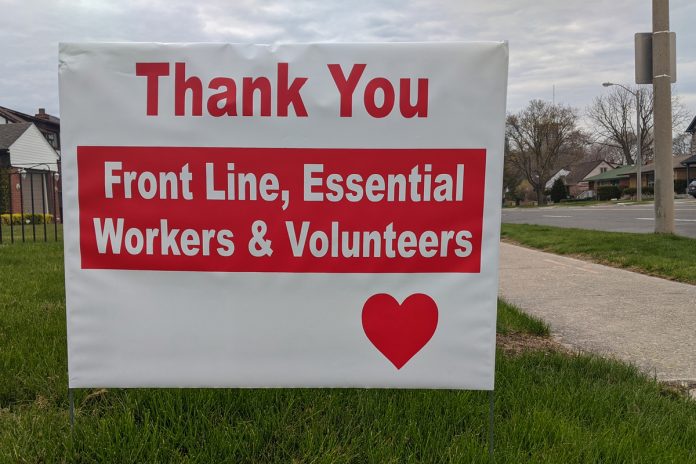The unofficial start of Summer 2020 saw crowds of Memorial Day consumers celebrate the long weekend cautiously (and some not so cautiously), as several U.S. states took steps to “re-open” beaches and businesses, and jumpstart stalled economies.
With pandemic social-distancing protocols seemingly here for the long term, retailers and shoppers, who have been sheltering-in-place for months, now have begun to emerge into a global retail environment that could be forever changed by COVID-19.
Customer delivery and pickup are no longer optional for most retail businesses, including cannabis retailers and dispensaries, as coronavirus changes the way people shop.
Like other retailers, cannabis businesses have also experienced steep Q1 losses due to the pandemic. The U.S. and Canadian industries had already hit a slump when the pandemic hit in mid-March. Attorney David Feldman noted on his blog:
“A number of leading cannabis companies reported more losses in the quarter ended March 31. One big Canadian operator had a ‘smaller’ $137M quarterly loss. Another had to adjust its EBITDA to get down to a $19.7M quarterly loss. One U.S. operator’s year-over-year quarterly loss increased ten-fold to $45.7M. And another Canadian company has filed for insolvency protection. A handful of companies are starting to show profits, however,” Feldman noted in his series on the effects of the pandemic on cannabis industry businesses.
Feldman, a partner at cannabis consulting firm Skip Intro Advisors LLC, also commented on cannabis industry businesses that have received loans from the federally funded Payroll Protection Program (PPP).
Included as part of the pandemic economic relief CARE Act stimulus package, the PPP is overseen by the Small Business Administration and has been the subject of controversy as small and mid-level businesses in every industry said they have been left out of emergency funding, while large corporations received millions in loans.
At the start of the pandemic, many assumed cannabusinesses would be completely excluded from any federal emergency relief programs, due to continuing U.S. cannabis prohibition. However, reports indicate that a few cannabis businesses may have secured PPP loans.
Cannabis and CBD companies continue to contribute to front-line workers and COVID-related charities.
Denver-based cannabis brand Binske said it hopes to donate one million meals to nonprofit organization Feeding America. The Feeding America COVID-19 Relief Fund fundraiser, which launched in April and will last for four months, will donate five meals to families-in-need for every Binske product purchased.
“Giving back is in our DNA; it’s part of who we are. Being a family-run company, it’s easy for us to continue doing what we love to do. The only high I like better than our products is the high I get from giving to those in need,” Binske Executive Vice President Alex Pasternack said in a press release.
CBD product brands gave free product to front-line workers, with hopes that those essential personnel will benefit from infused formulations during the crisis.
CBD brand PrimeMyBody joined forces with pandemic relief organization Donate Beauty to give $275,000 in hemp-based skincare products to front-line workers at ten hospitals in Texas, as well as hospitals located in New Orleans and Pikeville, Kentucky.
“I’m proud to be donating these skincare products to those that are on the frontlines and hope that they provide even a small sense of normalcy and inner beauty for these amazing warriors,” said PrimeMyBody Chief Executive Officer Paul Rogers.
First & Free—the first CBD brand to launch in the U.S. from Canadian parent company and cannabis multinational Canopy Growth—donated $70,000 in product to nurses and workers at the New York Nurses Union, as well as New York Presbyterian and Howard University Hospitals.
Hemp-infused brand BGreat also provided front-line workers at New York University and New York Presbyterian Hospitals with CBD products, including its Focus and Relax shots.












